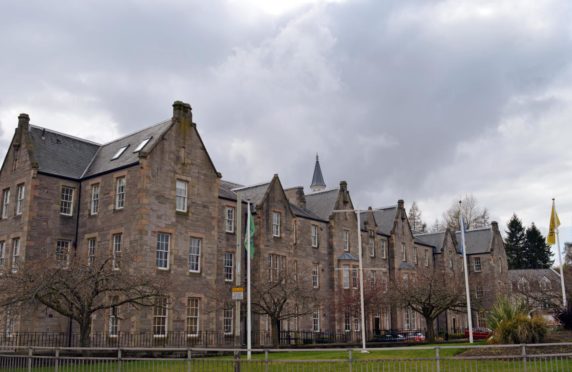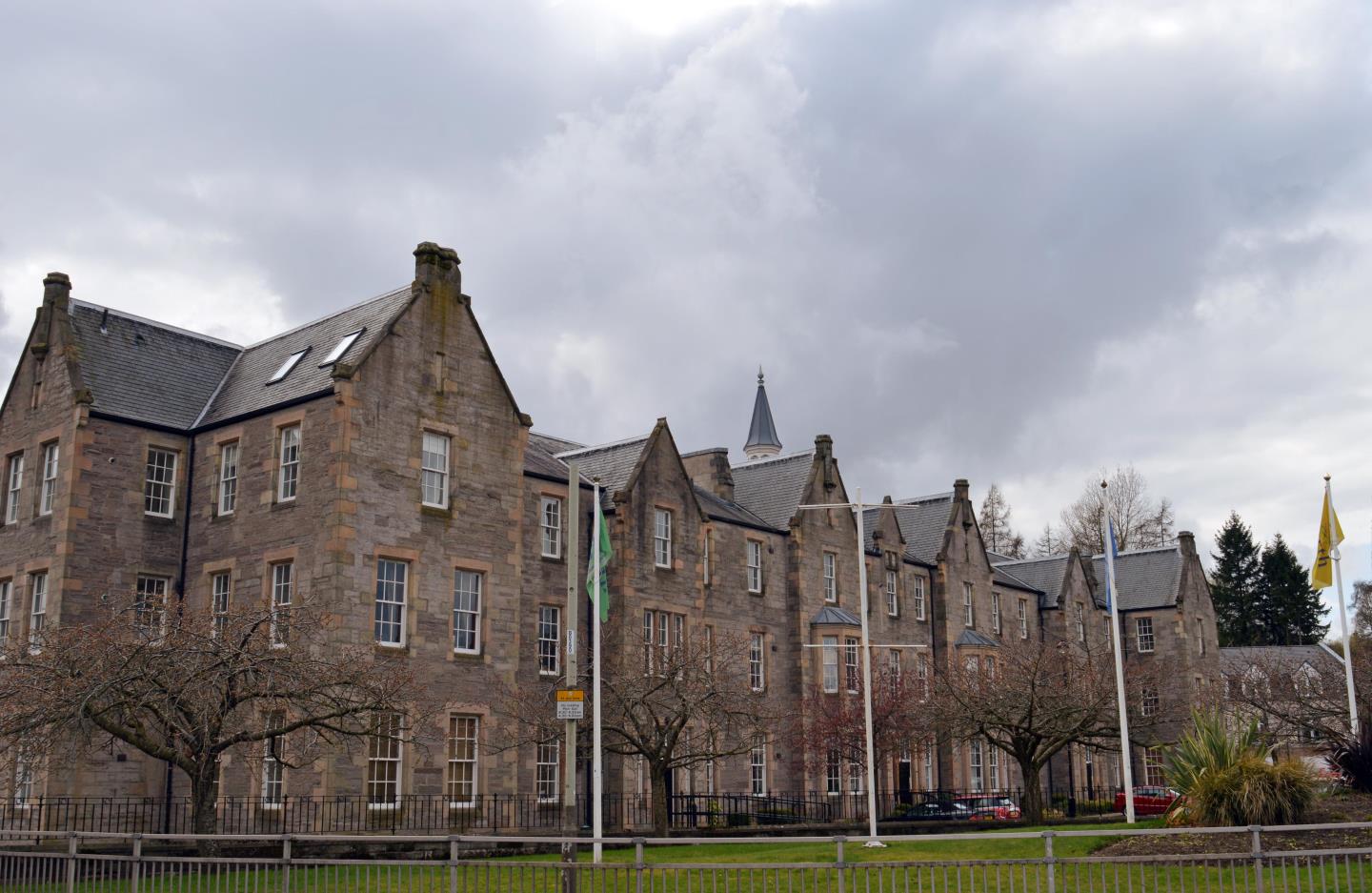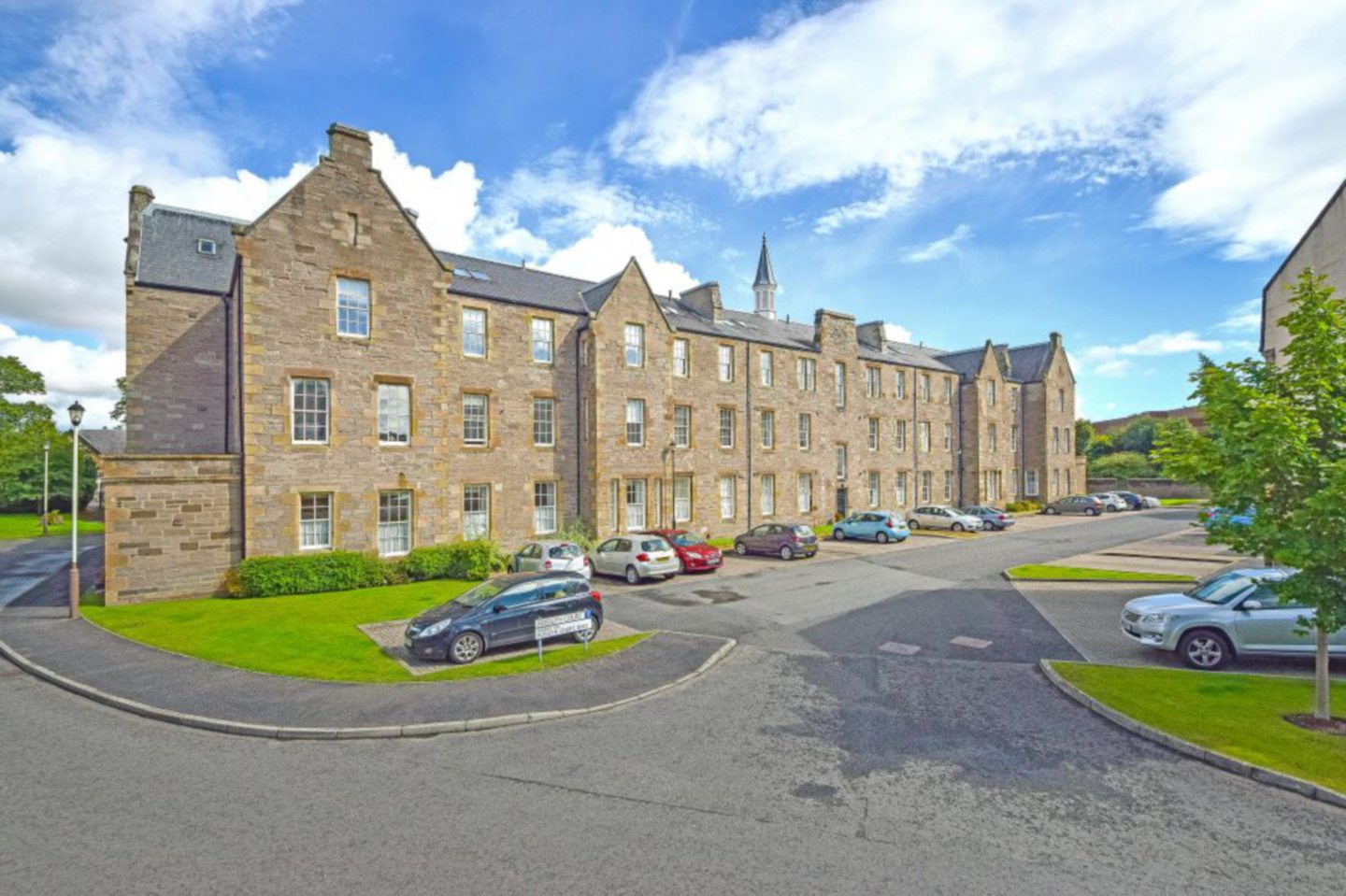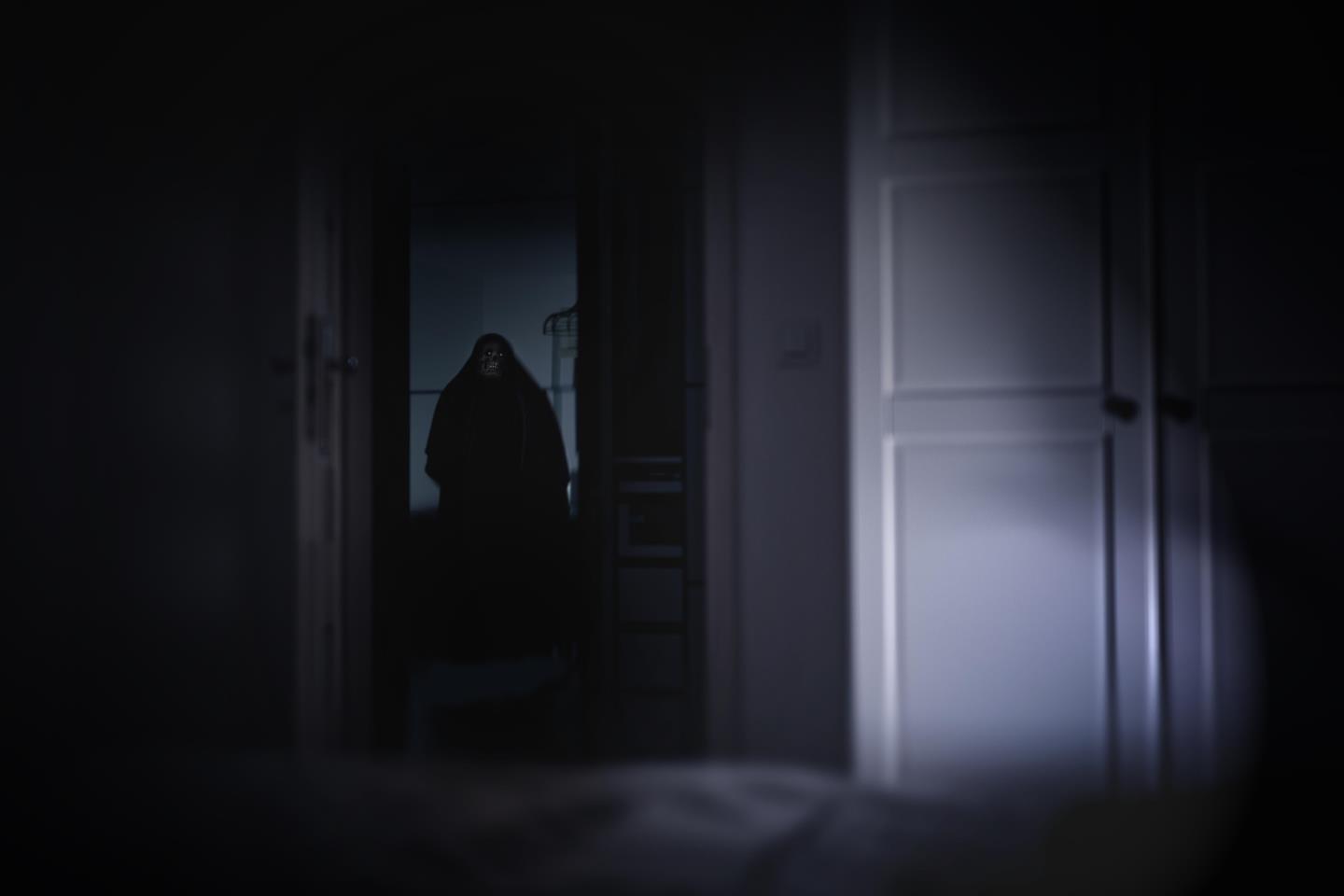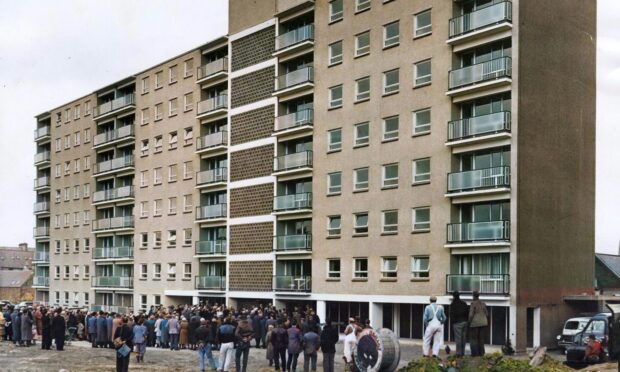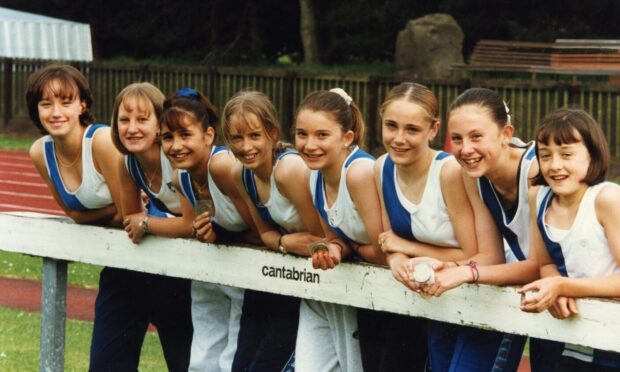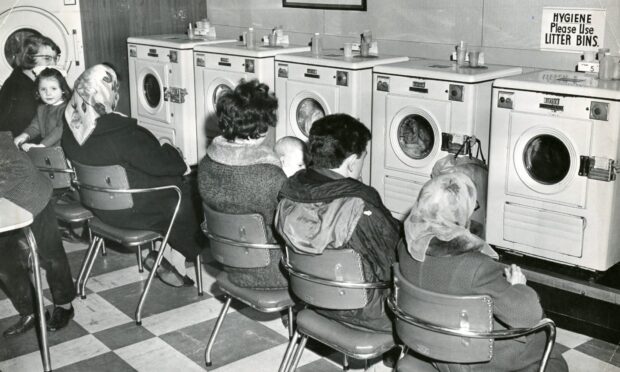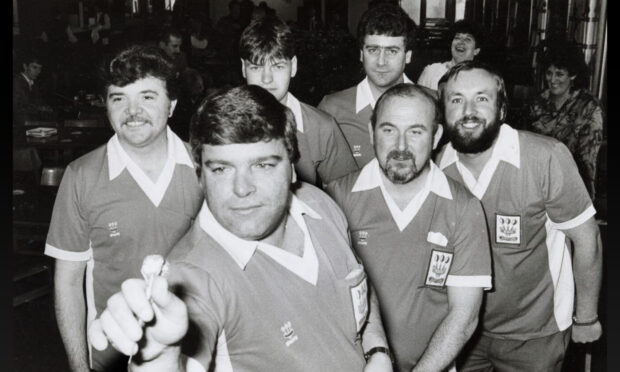In 1861 Perth’s poorhouse on Glasgow Road opened its doors to ‘lunatics’, paupers and their children. Now 180 years later the Victorian era home is luxury apartments but does its vast history still haunt the tenants of today?
For Perth locals the grand building is hard to miss when driving around the city and for some the architecture sends chills down their spine as they recall the haunting and seemingly paranormal events which they experienced whilst inside.
As we explore the history of the building you wouldn’t be blamed for thinking things may certainly be going bump in the night there.
The 1845 Scottish Poor Law Act
In 1843 a Commission of Enquiry was set up looking into the Scottish system of relief for the poor and if possible suggest improvements into the provisions available for those in need throughout the country.
In May 1844 the findings were published with notes that relief in Scotland was generally only available to the old, infirm, disabled and mentally ill with able-bodied people rarely receiving any sort of support.
The commission therefore recommended that a central Board of Supervision would regulate a new system and each of the country’s 880 parishes would have its own board of managers appointed each year.
Further proposals including an inspector of the poor in each parish to examine all applications for relief, made up The 1845 Scottish Poor Law Act.
Despite parishes being allowed to operate poorhouses following the implementation of the act, they were not required to do so.
The parish in Perth decided in 1858 that a poorhouse was required though and a competition was opened to architects in the area to design the new building.
Peculiarly attractive poorhouse
The new poorhouse was set to be erected on the south side of Glasgow Road with local architect Heiton winning the building contract.
The main building was constructed with a H-shaped layout which was typical of Scottish poorhouses. The two wings contained male and female accommodation with the “aged” at the front and able-bodied or “dissolute” inmates at the rear. Children’s quarters were places at the far end of each wing.
In May 1861 the Perthshire Advertiser documented the poorhouse’s imminent opening and even celebrated the structure saying: “This house is rapidly drawing towards completion, and in the course of the ensuing week is expected to be ready for completion of the poor.
“It is a fine building and is peculiarly attractive and striking to strangers approaching the city.
“The interior of the house is ample and capacious, the rooms are of large size, lofty and ventilated upon the most approved modern principles.
“Baths, water-closest and every aid that can be brought to bear upon the health, comfort and cleanliness of the occupants are in every department.”
While the media’s description of the new home was almost akin to a new city hotel for the incoming residents, living in the poorhouse would be far from a holiday.
Life in a Scottish poorhouse
Life in Scottish poorhouses such as the home in Perth was based on workhouses in England and Wales although operations were adapted north of the border.
Segregation of inmates, particularly of males and females was enforced and for paupers entering the poorhouses, life was strictly regulated.
Daily routine was of paramount importance with inmates required to wear the poorhouse uniform and each were given daily work according to their capabilities.
Inmates were allowed to bathe once a week under supervision and children under the age of 15 had their hair cut regularly with boys having to keep their hair length at two inches with girls allowed three inches.
In the Perth Poorhouse though treats were supplied, even if only annually, ensuring the city’s poor would be given a sense of normality despite their otherwise less than ideal surroundings.
A report in The Courier on Friday January 11 1884 said: “The inmates of the Perth poorhouse had their annual treat on Monday at one o’clock, each of them receiving a pie along with their usual dinner.”
The pie wasn’t the only treat that new year, the inmates were also entertained by a large choir who performed arrangements for them throughout the evening.
The article carried on saying: “The arrangements for the occasion were of a complete and happy description, tending greatly to the success of the entertainment and reflecting substantial credit on the tact and foresight of Mr and Mrs Stewart, the governor and matron.
“The occasion was attended with thorough success, and the inmates appeared to thoroughly enjoy themselves.”
World War One and Bertha Home
As World War One raged on, military authorities approached the Perth Parish Council intimating their requirement to take over the governor’s home and the lunatic department at the Perth Poorhouse to treat sick soldiers.
By October 1916 Perth Parish Council received a letter from the local government board stating that military authorities had requested them to arrange for the taking over of the remaining portions of the Perth Poorhouse.
The council agreed to grant the request and in February 1917 the remaining inmates were admitted to the Atholl, Weem and Breadalbane Combination Poorhouse in Logierait where they spent the rest of the war.
In 1930 the poorhouse continued to provide social care accommodation under the name of the Bertha Home.
By 1946 the establishment could accommodate 70 chronic sick, 56 with certified mental health issues and 56 destitute paupers and in 1956 it was upgraded to run as a care home for the elderly
The building was further used as a nursing home before it was used as offices for the local authority’s social work department.
Rosslyn House hauntings
In 2001 the Rosslyn House would once again be inhabited when it was converted into flats.
The family homes have been filled ever since.
Many residents and visitors have experienced strange occurrences and it is not known how many of the building’s inhabitants are alive…
Perth mum Sophia, who only wished to be identified by her first name, moved into her flat on the top floor of the former poorhouse in late 2013 and despite growing up in the area she had no idea of the building’s past.
Her flat was a great size with a long landing and stairs leading to her master bedroom but just three months into her six month lease Sophia fled in the middle of the night vowing to never return again.
She said: “Looking back now I don’t even know why I took on such a big flat, the houses in there were massive.
“My flat was on the top floor so it was almost the building’s attic space and I didn’t know anything about the home’s history beforehand. I wish I did now!
“At first my immediate thought was that someone else had keys to the flat as things were being moved, big heavy doors would open and close on their own despite me jamming them open and lights seemed to turn on themselves.
“It actually got to the point where I went back to the estate agent that I was renting the flat from to ask if anyone else had a spare set of keys as I had no idea how else it would be happening.
“The flat was also always cold despite the heating being on 24/7 but the final straw happened in the middle of the night.
“I was laying in bed and I heard distinct, very clear and loud footsteps making their way towards my bedroom door along the long corridor. All of a sudden they just stopped.
“I really thought that someone must have got in the flat like an intruder and I was just frozen in fear staring at the door waiting for it to open but it never did.
“Despite it being the middle of the night I jumped out of bed got my clothes on and left heading straight for my parents house – I think they got a fright too.
“It was too terrifying to even go back and I wouldn’t even go for my stuff without someone else being with me. I ended the tenancy three months early and despite all of the fees I wasn’t bothered – I knew I couldn’t live there anymore.
“I have never experienced anything like it after and I am now really interested in other people’s experiences and if there is anything paranormal going on in there.”
Sophia recently reached out to other locals on the Auld Perth Bairns Facebook page hoping that one or two others may have had similar paranormal experiences – and boy did they deliver.
She added: “I only expected one or two responses to my post but there has been hundreds of comments with people having similar experiences which has just made it even more interesting.
“What I have found strange is that a lot of others who have reported things also lived in flats on the left side wing so I would love to know what ward was on our wing.
“There was also people who worked in the building when it was a care home who reported the old style lift going up and down floors on its own accord.
“It made me think of a bricked up doorway which was in my flat that I never thought to much of. Now I wonder if that was to the lift?
“Some of the comments and stories have given me goosebumps and it has been people from all walks of life who have given accounts of what they have seen. One of the ones which stood out to me was the story of a carer who only entered the building once.”
That home carer was Shannah Jamieson whose encounter with the paranormal only occurred last year.
Shannah explained that since the events during a home visit the building now gives her goosebumps.
She said: “One day I took on another member of staffs rounds which included someone in the flats. It was a bright Saturday morning and while in the apartment the client asked me to get something from a cupboard.
“As I walked up the hall every light bulb, in every room popped. I was a bit shaken but tried to stay calm and as I was bent down to sweep up the glass I felt a hand clear as day on my shoulder.
“Assuming this was my service user I turned around to see no one was there but there was a wet hand print on the shoulder of my uniform.
“I nearly died on the spot. As I left and headed down the stairs I felt someone run past me but again nobody was actually there.
“My client didn’t really say much about the bulbs, apart from that it happens often but they weren’t frightened. I never mentioned the wet hand print.
“I had nightmares for months and never went back. Even driving past the building gives me goosebumps now.”
Other former residents and workers from the home have also said they have heard the voices of children playing and footsteps in hallways whilst some have even claimed to see apparitions of ghostly figures.
With the 180 year history of the building, would you be surprised if there was something paranormal in the homes?
